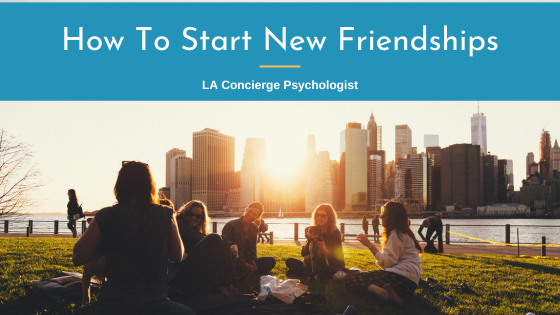This article offers tips for parents who want to help their twice-exceptional (2e) young adult child launch a successful career. If you’re unsure whether your child is twice exceptional, please read What Is A “Twice Exceptional” Teen? for common 2e traits. You can also read our article on home supports for 2e teens.
Choosing and launching a career is challenging for any young person, but it’s particularly tough for twice-exceptional (2e) teens. Nevertheless, a 2e teen can ultimately excel in their chosen career given the proper encouragement, guidance, and tools. The younger you start to prepare your child for the future, the better off they will be. A twice-exceptional child may need support from you, a therapist, and others through every stage of the career development process, including:
Career Selection
Obstacles to Picking a Career
If your emerging adult child still doesn’t know what they want to do with their lives, try not to worry. It is part of adolescence to experience confusion and uncertainty regarding one’s identity and life path. At the same time, you should know that 2e kids are particularly prone to confusion around their own identities. During childhood, many 2e kids are encouraged to spend a lot of time and energy overcoming their weaknesses. If this has been the case for your child, they may not have had much time to explore their strengths and interests. They may also have developed the false belief that they are not good at anything. Another reason why twice-exceptional young adults struggle with career selection: they are often in the habit of covering up the unique parts of their personalities. This defensive coping mechanism, which is called masking, is prevalent in autistic people. Due to bullying, rejection, or other painful social experiences, they may have learned that it is less painful to emulate their peers than it is to be themselves. If your child often relies on others to determine their interests and values, they may have forgotten who they truly are.
Address Masking
These factors can make it harder for twice-exceptional young adults to choose careers. Fortunately, there are ways to overcome these obstacles. One thing we recommend doing is talking to your child about the risks of masking. The earlier you do this, the better. In some circumstances, masking may help them to avoid social faux pas. However, more often than not, masking ultimately causes more harm than good. By learning to embrace their uniqueness, your child will be freer to explore aspects of their personality they might otherwise have suppressed.
Extra-Curricular Activities
We also recommend that you give your child plenty of extracurricular opportunities to explore their interests. Do this even if you can’t initially see how those interests might translate into a career. By keeping an open mind and allowing your teen to pursue after-school activities of their choosing, you can accelerate the career exploration process. In these activities, they will cultivate skills such as social skills or executive functioning skills. These transferable skills will help your twice-exceptional child in their future career.
Education
Gap Years
If your child is still unsure of which career path to follow after graduating from high school (a common scenario), it may be in their best interest to take a year off. With the right structure and planning, a gap year can be an opportunity for your child to prepare themselves. They can do informational interviews, internships, or job shadows in their areas of interest to see if anything sticks. Having your child take a community college class or two can also move them in the right direction. Unlike high schools, which focus on a core curriculum, community colleges and trade schools offer hands-on classes in various subjects. By taking a class or two in the areas they are interested in, your child can whittle down their options without spending a fortune on university tuition. Attending a nearby community college can also provide an opportunity to practice being an independent student while still living at home.
Supporting Independence, Even While at Home
Once your child feels ready to take the step of attending university, it will be a big change for them. Twice-exceptional college students leave behind the support systems they previously relied upon in high school, including IEPs and familiar support staff. If they are moving away from home, they will no longer have direct access to your support and guidance. To prepare your child for college, teach them functional skills like how to chunk studying, how to use a planner, etc. It may be tempting to manage your child’s life for them when they are living at home. However, you can be more helpful by helping them become more independent. You should still support and advise them through difficulties, of course. Though, it is healthier for your child to work through their own problems and experience the consequences of their actions.
Accommodations
An equally important element to preparing twice-exceptional college students for success is connecting them with the right accommodations at university. Ensure your child knows their legal rights, has the proper documentation to support their needs, and has mastered the self-advocacy skills to ensure their accommodations are correctly implemented.
Appropriately Challenging Education
Finally, your 2e young adult must be challenged in college lest they become bored and disengage. If possible, allow them to test out of introductory classes in subjects they already mastered during high school. Select each subject and difficulty level carefully to create a college schedule that both challenges and supports your child in alignment with their strengths and weaknesses.
Job Placement
A thorough and thoughtful career preparation process will allow your child to learn many new skills, including time management, self-advocacy, communication, conflict resolution, self-care, and emotional regulation. Ideally, by the time your twice-exceptional young adult starts interviewing for jobs, they will already have mastered many of the skills they will need. They should also be well acquainted with their skills and be able to communicate them with potential employers. Despite all this, job hunting is often a draining and unpredictable process. Support your child by reminding them of their unique strengths, and if you haven’t done so already, connecting them with a therapist or job coach experienced in working with twice-exceptional young adults. With the right balance of freedom and support, your child can build the confidence and functional skillset they’ll need to interview and land a job effectively.
Learn more about our teen counseling services, focused on 2e tweens and teens who often also struggle with anxiety and depression. If you feel like your family needs more support, book a free, 20-minute phone consultation with our teen specialist Dr. Jenifer Goldman, to see how she can help. As a teen specialist, she often follows her clients through college and thus has significant experience working with twice-exceptional college students as well.



